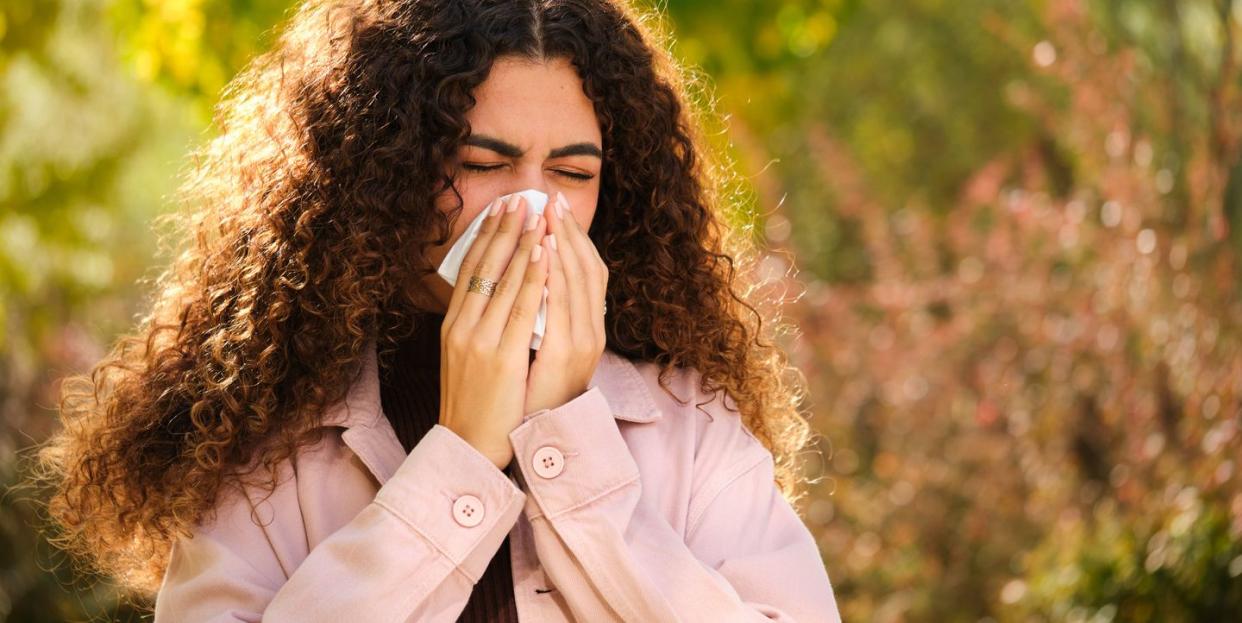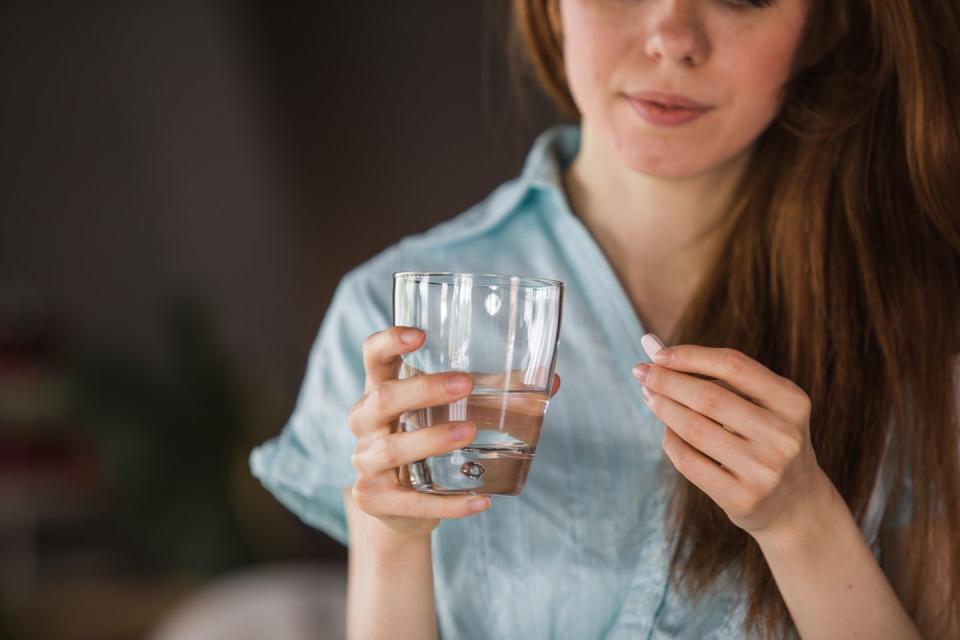Sneezing already? Here's how to find the best hay fever treatment for you

- Oops!Something went wrong.Please try again later.
We’re sorry to be the bearer of bad news but hay fever season is back with a vengeance.
As sufferers will know, the sniffles can begin as early as March - and they’re likely to last until September. As soon as the warm, windy weather rolls back around and the pollen count shoots up, the misery begins.
“Hay fever is caused by an allergy to pollen,” Phil Day, Superintendent Pharmacist at Pharmacy2U tells Cosmopolitan, and as many as one in four Brits are affected.
The symptoms can vary in severity but there are all sorts of unpleasant culprits, including sneezing, a runny or blocked nose, itchy, red and watery eyes, or a cough. Hay fever can also be a trigger for patients who have eczema or asthma, adds Day.
Unfortunately, there is no cure for hay fever. But - and this is an important but - there are various treatment options available to patients in the UK (including over-the-counter medicines).
Which hay fever treatment is right for me?
Before we delve into the various options available, the good news is there are lots of different treatment options that can make a difference to your day - and you don’t even need to see a GP. “In most cases, medicines available without a prescription can be a real help,” reassures Day.
That being said, seeking the help of a qualified medical professional can only be a good thing, as they can offer personal advice. “Easing the symptoms can be as straightforward as an over-the-counter daily antihistamine tablet or a daily nasal spray, and your pharmacist will be able to advise on the best course for you,” Day explains.
Hay fever tablets

“Antihistamines, which stop the body’s reactions to allergens, are available in both tablet and liquid forms and can be used either as required or on a regular basis,” advises Day.
The expert says frequent sufferers may find regular treatment more beneficial to keep the symptoms at bay, and in more severe cases, prescription-strength antihistamines may be required.
Antihistamines work their magic by blocking histamines, the chemical your body produces in response to an allergen. Histamines cause swelling and expansion of the blood vessels, which is at the root of most hay fever symptoms, explains Day.
As such, antihistamines can help with swelling, itching, and other symptoms. “Taken in their recommended dose, antihistamines are fine to take regularly, but you should check with your pharmacist or GP before taking them for a prolonged period of time, in case there might be a better treatment for you,” the pro adds.
Eye drops and nasal spray
“Eye drops and nasal sprays are also available without a prescription and can be combined with antihistamines or used on their own,” according to Day.
Anti-inflammatory steroid nasal sprays such as beclomethasone and fluticasone are very effective when used every day in the allergy season, he says. Like before, prescription strength treatment is also available for people dealing with more troublesome symptoms.
What’s the most effective hay fever treatment?

To cut a long story short, Day says the answer may depend on your pattern of symptoms - adding that it can take some trial and error to find the best treatment for you
“If your main symptoms are a blocked or runny nose, then a daily anti-inflammatory nasal spray could be the best place to start. Similarly, if you are mostly troubled by itchy or watery eyes, an anti-allergy eye drop should help.
“Both of these can also be taken alongside an antihistamine tablet, usually taken once daily, and many different types are available that don’t cause drowsiness – although some are drowsy, which could be helpful if you also have trouble sleeping.”
Do ask your pharmacist, as they can talk you through the options available.
Day points out there are also several lifestyle changes hay fever sufferers may consider making to help ease symptoms. These include:
Switching up your diet to include foods rich in Omega-3 and Omega-6 fatty acids, such as fish, seeds, nuts, and oils, as they contain anti-inflammatory properties which may help to reduce hay fever symptoms.
Avoiding outside activity when the air is warming up and cooling down (pollen count is usually highest in the morning, late afternoon and early evening, says Day, who recommends checking weather apps daily if you’re especially sensitive to pollen).
Cutting down on alcohol as most drinks contain histamine. Clear alcohols are generally lower in histamine than darker drinks like red wine and beer, but champagne is high in histamine, the expert explains.
Vacuuming your home regularly (specifically, you may wish to use a vacuum cleaner with a HEPA filter).
Wearing wraparound sunglasses to prevent pollen from getting into your eyes.
Putting Vaseline around your nostrils to trap pollen.
Following these measures and taking medication can ease symptoms significantly for many people, Day says, but if your symptoms persist or worsen, or you have any concerns, then you should see your GP.
This article is not intended to be a substitute for professional medical advice or diagnosis. Always seek the advice of your physician or other qualified health provider with any questions you may have regarding a medical condition.
You Might Also Like

